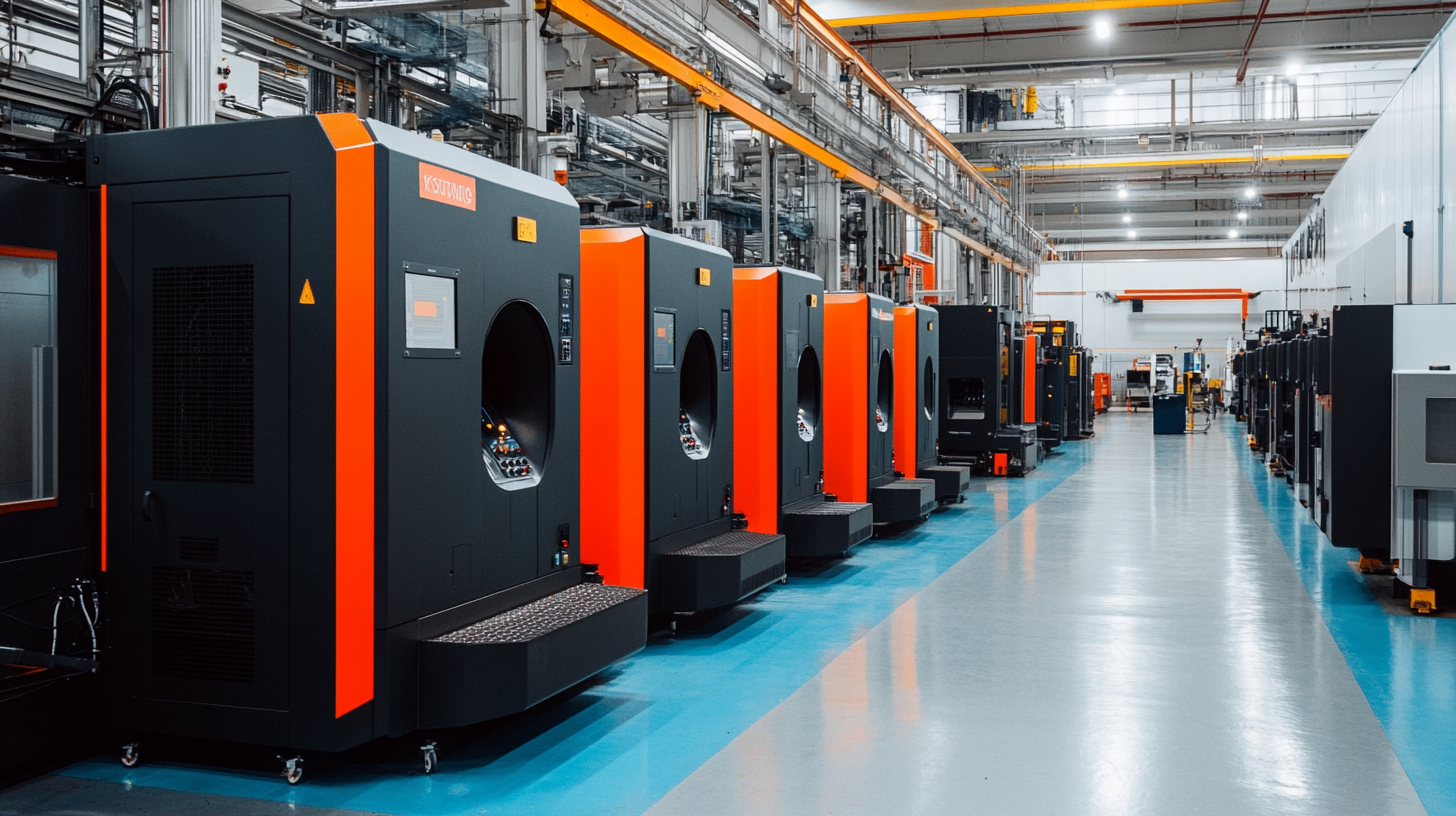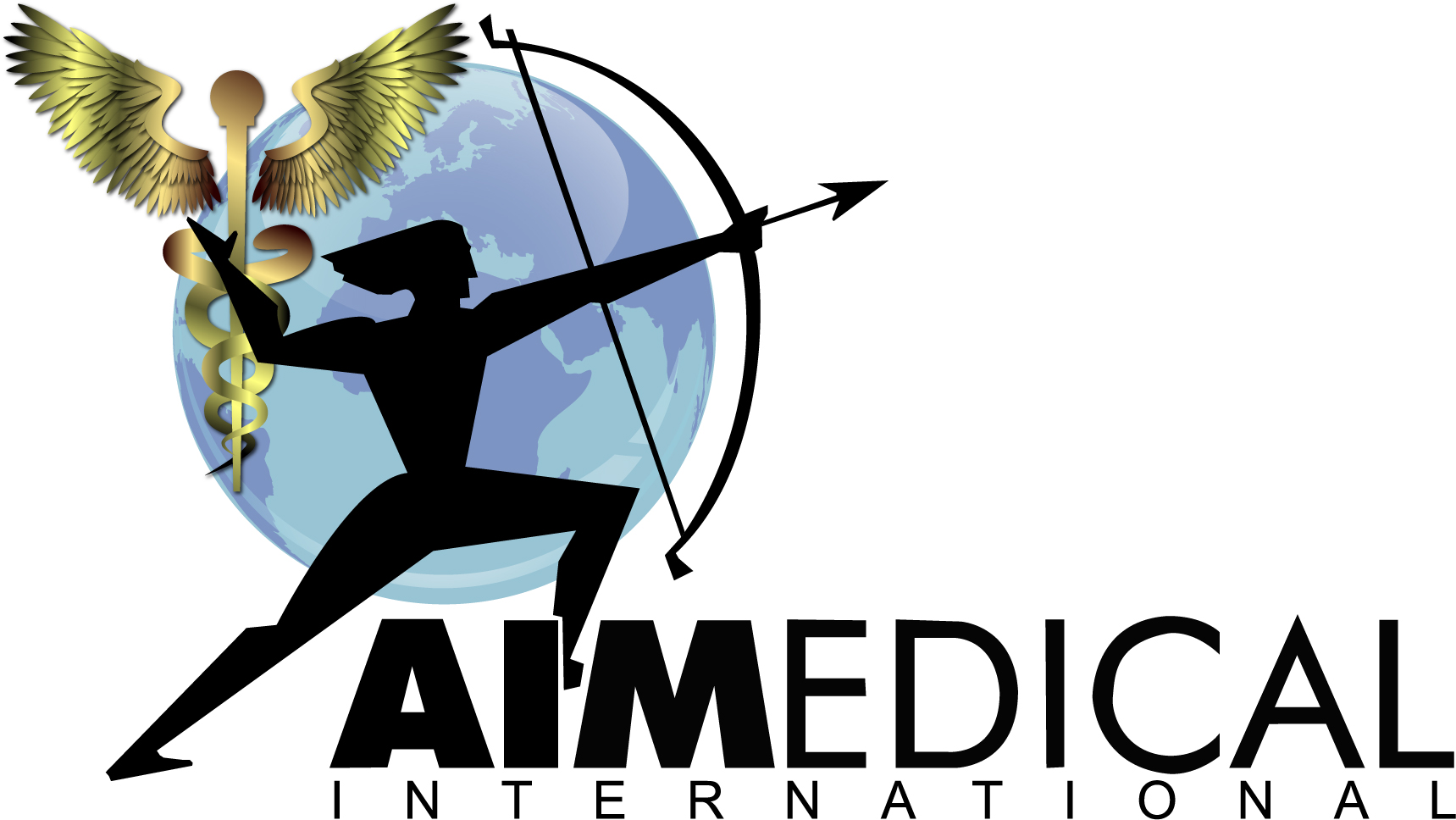2025 Trends in Manufacturing: The Ultimate Guide to Sourcing Tms Machines Globally
In recent years, the manufacturing landscape has undergone significant transformation driven by advancements in technology and global supply chain dynamics. According to a report by McKinsey, the manufacturing sector is projected to grow by 3.4% annually through 2025, fueled by increasing demand for automation and efficiency. As companies look to enhance their production capabilities, the sourcing of specialized machines, particularly TMS machines, has become a crucial strategy. This guide aims to navigate the complexities involved in sourcing TMS machines globally, ensuring manufacturers can stay ahead of the curve.
As businesses expand their operations and enter broader markets, the decision to buy TMS machines has never been more critical. A study by the International Federation of Robotics highlighted that investment in smart manufacturing technologies could increase productivity by up to 30%. This trend emphasizes the importance of selecting the right machinery to meet evolving industry demands. In this ultimate guide, we will explore key trends shaping the manufacturing sector in 2025 and provide insights on how to effectively procure TMS machines to elevate operational efficiency and competitiveness.

Key Technologies Transforming Manufacturing Sourcing in 2025
In 2025, the landscape of manufacturing sourcing is set to be dramatically transformed by innovative technologies. One of the key players in this shift is the integration of artificial intelligence (AI) and machine learning into the sourcing process. These technologies can analyze vast amounts of data to predict market trends, optimize supply chain management, and ensure efficient resource allocation. With these advancements, manufacturers will be able to make more informed decisions, reducing lead times and lowering costs, while also enhancing overall product quality. Another significant trend shaping the sourcing of TMS (Tool Management System) machines is the rise of Industry 4.0. This movement emphasizes the connectivity of smart devices in manufacturing environments, enabling real-time monitoring and data sharing. As sensors and IoT (Internet of Things) devices become ubiquitous in factories around the globe, companies will benefit from increased visibility into their operations. This digital interconnectedness will facilitate better collaboration with suppliers and partners while streamlining the sourcing process, creating a more agile manufacturing environment. Sustainability is also a critical element influencing sourcing strategies in 2025. As consumers become more environmentally conscious, manufacturers are prioritizing green practices, including sourcing from suppliers who maintain eco-friendly practices. Technologies such as blockchain can enhance transparency in the supply chain, allowing manufacturers to verify the sustainability claims of their partners easily. By embracing responsible sourcing, companies not only meet consumer demands but also contribute to a competitive edge in an increasingly eco-aware marketplace.

Exploring Global Supply Chains: Opportunities and Challenges
As global supply chains continue to evolve, Vietnam is emerging as a focal point for sustainable investments in manufacturing. According to a recent report by McKinsey, Vietnam's manufacturing sector is projected to grow by 7-8% annually over the next five years, largely driven by foreign direct investment (FDI) and an increase in demand for sustainable practices. This presents a unique opportunity for companies seeking to source technologically advanced TMS machines globally while staying committed to sustainability goals.
The influx of investment in Vietnam is underscored by government initiatives aimed at enhancing infrastructure and improving the business environment. A study from the World Bank highlights that Vietnam's strategic position in Southeast Asia, coupled with its commitment to reducing carbon footprints, makes it an attractive destination for environmentally conscious companies. As firms seek to diversify their supply chains, Vietnam's ability to provide cost-effective, sustainable manufacturing solutions could prove invaluable.
However, sourcing TMS machines in this burgeoning market comes with its set of challenges. A report by Deloitte indicates that while Vietnam offers lower labor costs, companies must navigate regulatory complexities and potential supply chain disruptions. Building relationships with local manufacturers and understanding the intricacies of Vietnamese trade policies are essential strategies for leveraging the opportunities that this market presents. As companies strategize their global sourcing, Vietnam stands out as a promising hub aligned with the goals of sustainability and innovation in manufacturing.

Sustainability in Sourcing Tms Machines: Best Practices for 2025
In 2025, the sourcing of Transportation Management System (TMS) machines will increasingly prioritize sustainability, aligning with global environmental goals and the demands of conscientious consumers. As industries look for efficient solutions, the need for eco-friendly TMS solutions becomes imperative. Recent reports indicate that organizations integrating sustainable practices into their sourcing processes can expect a reduction in operational costs by up to 20% while enhancing their corporate reputation.
A pivotal aspect of sourcing TMS machines sustainably is the selection of suppliers who demonstrate a commitment to environmental responsibility. According to research, 75% of companies reported increased pressure from stakeholders to adopt greener practices, leading to a surge in the development of eco-conscious TMS platforms. These systems not only optimize transportation routes, reducing fuel consumption and greenhouse gas emissions but also facilitate better waste management and recycling processes within the supply chain.
Furthermore, advancements in technology, including Artificial Intelligence and machine learning, are integral to enhancing the sustainability of TMS solutions. A notable study highlights that organizations utilizing AI-driven TMS can improve delivery efficiency by up to 30%, significantly lowering their carbon footprints. As we approach 2025, the convergence of technology and sustainable sourcing will transform the manufacturing landscape, enabling businesses to thrive while contributing positively to the environment.

Evaluating Supplier Competitiveness in a Global Market
In today’s interconnected world, evaluating supplier competitiveness in a global market has become paramount for manufacturers looking to source Tms machines effectively. A thorough assessment of potential suppliers involves multiple factors, including quality, cost, and delivery performance. Manufacturers should leverage advanced analytics and market insights to benchmark suppliers against industry standards. This approach helps identify which suppliers not only meet specifications but also excel in areas like innovation and customer service, ultimately contributing to a competitive edge.
Moreover, understanding regional market dynamics is critical. Different regions offer varying advantages, such as specialized expertise or lower labor costs, which can influence supplier capabilities. Manufacturers should conduct a comprehensive risk assessment, considering geopolitical factors, regulatory environments, and economic stability, as these elements can significantly impact supplier reliability and performance. Establishing strong communication channels and building strategic partnerships with suppliers across diverse geographies can foster collaboration and ensure a more resilient supply chain.
Finally, sustainability is increasingly becoming a vital criterion in supplier evaluation. As manufacturers face pressure to reduce their carbon footprint, selecting suppliers who prioritize environmentally friendly practices and materials can enhance a company’s brand reputation. This trend not only aligns with consumer preferences but also prepares manufacturers for future regulations. By focusing on these areas, companies can create a robust framework for evaluating supplier competitiveness, leading to more informed decisions in the global sourcing of Tms machines.
Innovations in Tms Machines: What to Look for in 2025
As we approach 2025, the manufacturing landscape is set to evolve dramatically, particularly in the realm of TMS (Tool Management Systems) machines. Innovations in technology are not only streamlining operations but also enhancing productivity and efficiency. Manufacturers looking to invest in TMS machines need to be keenly aware of several key trends that are expected to shape the industry.
One of the most significant advancements is the integration of advanced automation and artificial intelligence into TMS machines. These technologies allow for real-time monitoring and predictive maintenance, reducing downtime and operational costs. Businesses should seek machines that utilize AI algorithms to optimize tool usage and manage inventory effectively, as these features can provide invaluable insights for better decision-making.
Another crucial aspect to consider is the adaptability of TMS machines. As manufacturing demands change rapidly, machines that offer flexibility and scalability will become increasingly important. Models that can easily integrate with existing systems and accommodate new tools or processes will provide a competitive edge. Additionally, sustainability is a rising priority; therefore, eco-friendly manufacturing practices and energy-efficient TMS machines are likely to attract attention from companies aiming to reduce their carbon footprint.
Investing in TMS machines with these innovations will not only keep manufacturers ahead of the curve but also prepare them to meet the future challenges of the industry. As we delve deeper into 2025, being proactive in understanding these trends will be essential for successful sourcing and implementation of TMS technologies.
